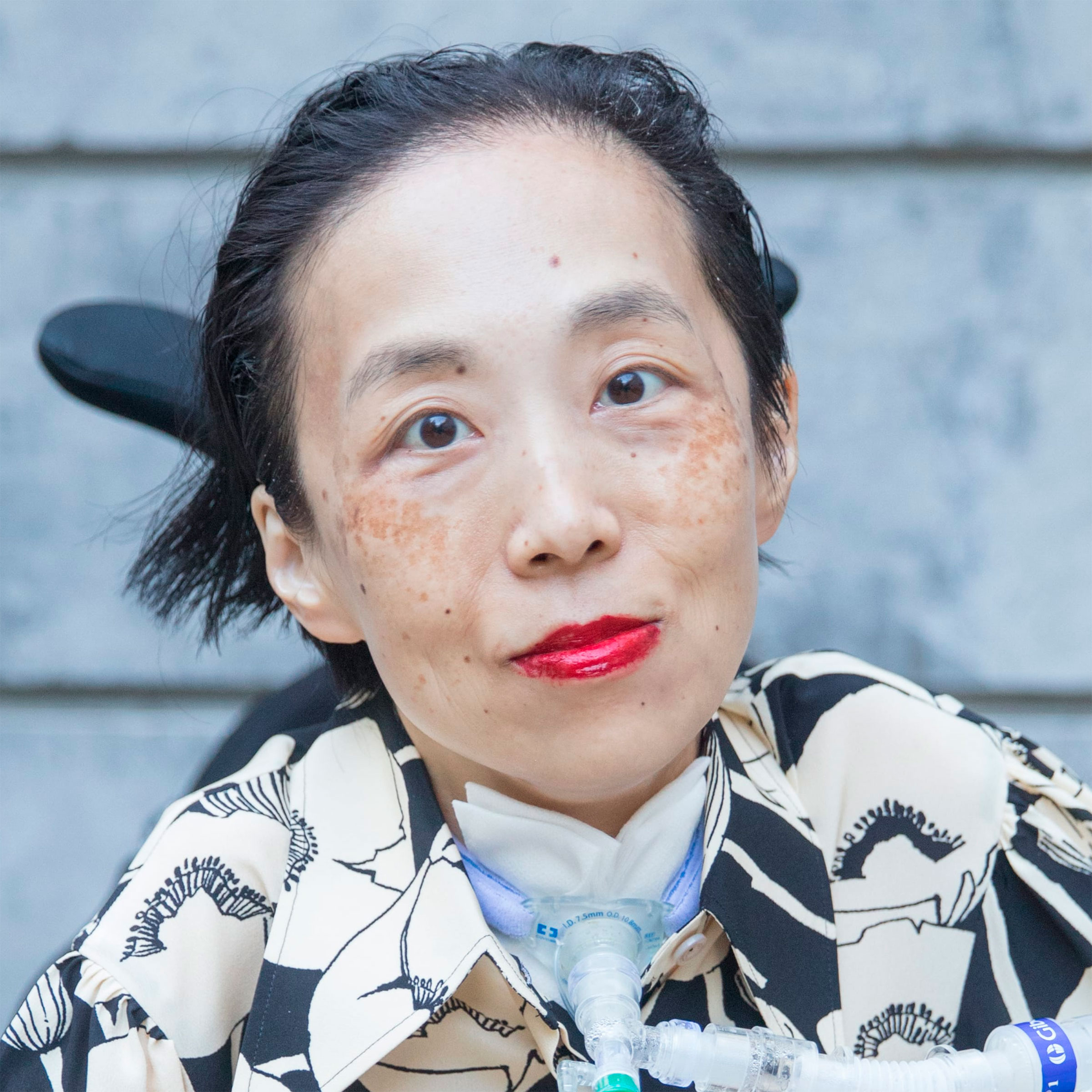
I am an Aries through and through—bold, ambitious, fiery, and confident. Today, March 27, marks my 50th year on this planet, something I could never have imagined. I was diagnosed with an undetermined type of muscular dystrophy as a young child, and doctors told my parents I wouldn’t live to become an adult. My immigrant parents cried when they heard the news. Even though this news was devastating, they never treated me like a fragile egg about to break. In fact, as the first born child of three girls, I had a lot of responsibilities and expectations which only reinforced my Aries tendencies.
While my parents always supported me, I knew at an early age that my life was different. And since they didn’t sugarcoat anything to me, I had a very clear sense that my time was limited. In my bedroom, with a scary clown ceiling light above me at night, my vivid imagination wondered how I would die–would it be a slow and painful death? Would it be fast from a medical emergency? Knowing my muscles are progressively weakening as I struggled to walk as a child and breathe as a teenager always kept death at the forefront of my mind. Believing I had no future shaped me in ways I am still processing today.
Birthdays have given me pause for reflection, especially this year. I recently looked at a picture taken from my 40th birthday party and could not recognize myself. I wasn’t wearing a BiPap mask because at the time I only had to use it intermittently to support my breathing. I did not wear a belt across my chest which I need now because my upper body has grown weaker. I recalled being exhausted after the party. When I got home, I immediately put my mask on and turned on the ventilator. It was a sweet relief. Shortly after I started to use it for longer periods of time until I began using it all day and night. I didn’t see it as a failure of my body but part of the inevitable downward slide toward my final destination.
Two years ago, I experienced the most harrowing and traumatic series of medical crises that led to weeks in the ICU which left me without the ability to speak due to a tracheostomy, a tube in the throat connected to a ventilator, and the ability to swallow and eat or drink by mouth. This resulted in needing a feeding tube that goes into my stomach and intestine. During my hospitalization, I also lost sensation in my bladder so now I urinate through a catheter four to five times a day. Those weeks were like a fever dream–I couldn’t sleep for days because every time I closed my eyes I feared I would never wake up. I was in tremendous pain and could only communicate by mouthing words to my sisters or scrawling on a pad of paper. In the few moments when I could write, I outlined instructions to my sisters on what to do if I didn’t make it. Was this the way I would die? It was my closest brush with death in a series of many but I lived to tell another tale. But I was determined to claw my way forward to another day.
I am still adjusting to life again in a new body and way of life that requires a considerable number of resources, supplies, and machinery to stay alive and avoid institutionalization. The amount of maintenance and administrative work it takes to be disabled in America has also taken a toll—the additional out-of-pocket home care that I need now is $840 a day. With the donations from my GoFundMe dwindling, managing and directing a team of caregivers for my daily activities requires a lot of forethought and clear communication. Being disabled in a nondisabled world is precarious, one of constant adaptation. I remade myself into a new cyborg form that still has a voice, a breath, and a will to live.
Right now, as my body is at its lowest point, I am at the height of my powers. I have never been more happy, free, and resolute on what I want to do. As I turn 50, I am filled with mixed emotions. I dread what lies ahead if I reach 60. Will this be my final decade of life? Maybe it’s ok that I can’t predict what will happen or what the future will hold since no one can. What I will do is spend my time, energy, and labor intentionally with the people I care about. I will host dinner parties, make chili crisp for my friends, and spoil my cats Bert and Ernie. I will treasure every breath pushed through my ventilator and be grateful to have a rare night’s sleep without pain. And most importantly, I will try to rest and care for myself.
Death remains my intimate shadow partner. It has been with me since birth, always hovering close by. I understand one day we will finally waltz together into the ether. I hope when that time comes, I die with the satisfaction of a life well-lived, unapologetic, joyful, and full of love.
More Must-Reads From TIME
- The 100 Most Influential People of 2024
- Coco Gauff Is Playing for Herself Now
- Scenes From Pro-Palestinian Encampments Across U.S. Universities
- 6 Compliments That Land Every Time
- If You're Dating Right Now , You're Brave: Column
- The AI That Could Heal a Divided Internet
- Fallout Is a Brilliant Model for the Future of Video Game Adaptations
- Want Weekly Recs on What to Watch, Read, and More? Sign Up for Worth Your Time
Contact us at letters@time.com